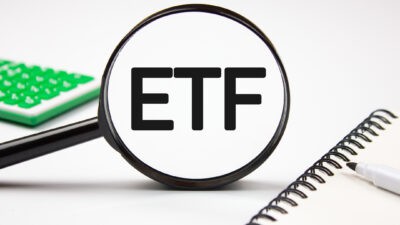The 2022 financial year that has just wrapped up was not a great one for ASX investors. Between 1 July 2021 and 30 June 2022, the S&P/ASX 200 Index (ASX: XJO) fell by 10.19%. But investors in the BetaShares Nasdaq 100 ETF (ASX: NDQ) had an even worse time.
As we discussed earlier this month, the NDQ exchange-traded fund (ETF) fell by a painful 20% or so over the 2022 financial year. So now we have turned the page on such a depressing 12 months, what might FY 2023 hold in store for this popular ETF?
Of course, it's impossible to know for sure. NDQ's performance is determined by approximately 100 individual shares on the US's NASDAQ exchange. But we can look at what might move this ETF over the next 12 months.
There are dozens and dozens of underlying companies held within this ETF. Even so, NDQ is still dominated by a handful of companies. Those are the largest shares on the NASDAQ exchange and would be familiar to almost every reader today.
They include Apple Inc (NASDAQ: AAPL), Microsoft Corporation (NASDAQ: MSFT), Alphabet Inc (NASDAQ: GOOG)(NASDAQ: GOOGL), Amazon.com Inc (NASDAQ: AMZN), and Tesla Inc (NASDAQ: TSLA).
Together, these five US tech titans make up almost 42% of NDQ's entire portfolio weighting.
What does FY 2023 hold in store for the NDQ ETF?
The valuations of these companies have all fallen significantly over the past year. This is the primary reason why NDQ itself has had such a tough time.
Of course, each company is individual. But it's fair to say all of them have been impacted by rising interest rates, investors' concerns over inflation, and fears over a possible global recession.
Thus, it's a reasonable bet that these factors will be at the forefront of what drives these companies' valuations over FY 2023.
So for any investor who wants to keep track of this ETF over the current financial year, keeping an eye on those macro factors is a good place to start.
It's hard to know how FY 2023 will treat these shares. And by extension, the NDQ ETF. But the next step for any current or would-be NASDAQ investors might be to look at these companies' upcoming earnings. The US has just started its quarterly earnings season.
Despite the past year's poor performance, NDQ units have still managed to keep a five-year average return of 18.22% per annum (as of 30 June).
The BetaShares NASDAQ 100 ETF charges a management fee of 0.48% per annum.









